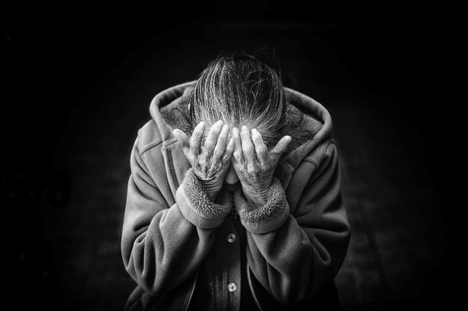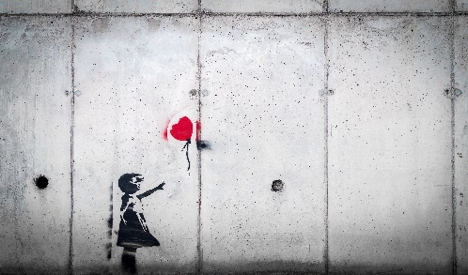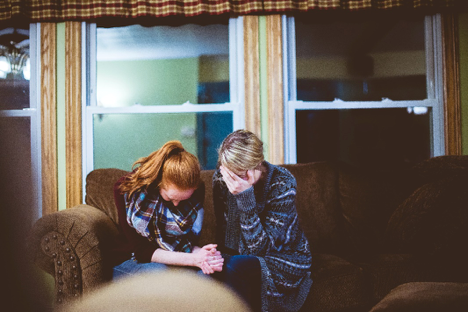
How does grief show up in a relationship? As a couples’ counsellor, I see grief show up in many ways and at different stages of a couples’ development.
Common Areas of Grief for a couple
- Disillusionment. A typical relationship will encounter grief, or disillusionment, after the honeymoon phase. This is when we get a glimpse of the person our partner really is. In this stage you may notice things about him or her that you didn’t before, you may question whether or not you can live with those qualities or habits of the other person. You likely will also feel some sadness that comes along with the disappointment of your expectations not being met.
- Past grief. Past grief or traumas can intrude on a current relationship, robbing one partner of the joy they might otherwise experience. Or, the past grief may intrude and create a new, unexpected challenge or conflict.
 Hoping to have one’s own wounds healed by a partner, and realizing their partner cannot nor is responsible for it
Hoping to have one’s own wounds healed by a partner, and realizing their partner cannot nor is responsible for it- Bringing home a baby. Bringing home a baby can shift the relationship, thwart the needs of a partner, and be a source of such a life change that the person you knew as your partner is forever gone. It is understandable that divorces in families with children most commonly occur when the youngest child is 3 and/or when the youngest child leaves home.
- Different parenting styles
- Having a child (including fostering/adopting) with extra challenges
- Loss of a job. The loss of a job, image, and/or income, and their fallout (ie/ needing to downsize a lifestyle, less money to pay essentials and/or lifestyle expenses) can be devastating and confusing.
- Moving. Moving away from or closer to family can cause significant levels of distress for both partners. Moving often is a highly stressful event in itself. In addition to the actual move, a sense of isolation can creep into the couple and an over-dependence on one partner as the only source of support for the other can be a huge challenge.
- Betrayal. A betrayal, whether emotional or physical can cause grief in a relationship. It is said that after a betrayal, the relationship is never the same.
- Empty Nest. When children leave home and there are only the two of you left, what happens? Where has the connection gone, who are you, and who are they?
- Psychical Changes. For instance, due to aging or medical conditions
- Illness. Illness and its effects.
- Separation. Periods of anticipating, going through, and post-separation can all carry wounds.
- Divorce. Leaving or being left by the person with whom you committed to being in a lifelong relationship is often shocking, devastating, and challenging on a variety of levels.
- Aging. Aging in a relationship can create shifts – partners may examine their lives and want something more in the last years, and they may grieve their regrets, and what will no longer be.
- Death. Death of parents, death of children, death of a spouse. Death oftentimes brings tremendous amounts of grief. Conflict between partners may arise when one partner does not grieve for as short or long as another partner.
- Twists. New twists in life will bring along new grief, and how the grief is met by the other party often adds another layer.

“Small” Losses
Often, the less extreme changes in life also create a sense of loss and grief. The aging body, the loss of youth, unrequited love, committing to a partner and hoping to heal your childhood wounds through them, and realizing they can’t.
As MJ from empathicguidance.ca states, “Grief is a guarantee in life, just as much as change is….Grief is an outcome of change.”
“Because even the smaller events of grief are uncomfortable, it is tempting to dismiss the discomfort and want to avoid any feelings that come along with it. However, when opportunities to grieve small losses are ignored, we lose the ability to use the muscle to practice resiliency and coping. MJ continues, “It’s in these little griefs that we learn to navigate life and are prepared for larger griefs, such as divorce, betrayal, children leaving the home, and death of loved ones.”
She continues, “A change takes us out of our comfort zones into a sea of emotions, ranging from rage and anger to sorrow and pain. The world as we once knew it is no longer and we struggle to navigate this new world. We avoid it as much as possible in any way we can. We judge ourselves for failing, for not foreseeing the current situation.” This is what MJ describes as disenfranchised grief – unacknowledged, dismissed, minimized and hidden grief.
The Impact of Grief on a Relationship
 Grief can serve to bring a couple closer it’s us against the world, alienate them I’m all alone in this, or destroy them I don’t understand or like the person I’m with anymore or we just can’t connect after what happened or I saw sides to my partner I don’t know and I don’t like.
Grief can serve to bring a couple closer it’s us against the world, alienate them I’m all alone in this, or destroy them I don’t understand or like the person I’m with anymore or we just can’t connect after what happened or I saw sides to my partner I don’t know and I don’t like.
Whether or not one partner says aloud what they are thinking or feeling, grief can seep into a relationship in an unspoken way. Naomi Remen writes:
Often we are unaware of the many levels of symbolism and meaning in interactions as simple as giving a thirsty person a drink or moving over to make room for someone else to sit on a bench. The unconscious mind is always eavesdropping on our relationships and we are often unaware of the messages and meta-messages that translate themselves to another person in our presence. Sometimes the messages we convey unawares may be even more coherent and relevant to the needs of others than the messages we consciously devise.
Common Responses to Manage our Feelings of Grief
- Denial – denying the event or the impact it has on us, our partners, our life
- Anger – being angry or even enraged that we are put in a situation like this, that x thing happened, or that we are left feeling like this
- Injustice – feeling that life isn’t fair and why did this event happen to us?
- Blame – Projecting your grief onto others through blame
- Hopelessness
- Helplessness
- Melancholy
- Loss of Trust
- Aversion to similar experiences
- Aversion to new experiences
- Sense of isolation, aloneness, or emptiness
- A state of survival
- Acceptance

Reflection Questions
Think about a situation you are currently grieving or a vivid memory of intense grief.
- What were your reactions?
- How did your grief show up?
- What are the masks (if any) that come up to cover the grief)?
- How did it impact those around you?
- How did your relationship strengthen as a result of the grief?
- How did your relationship weaken as a result of the grief?
- What did you need from your partner in your time of grief?
- What did you not receive from your partner in your time of grief?
- What did you receive from your partner in your time of grief that you found helpful?
- Do you still carry unresolved grief around the situation?
- If your partner could know and understand anything about your grief, what would you wish it to be?
A shift in Perspective
After some time, when the acute pain of grief is perhaps less stinging than it once was, there may be some space for you to reflect on the grief in a new way. We might notice that the grief has morphed us into a new version of ourselves, not better, not worse, but different.
In Kitchen Table Wisdom, Dr. Rachel Naomi Remen writes:
One of my patients, a woman with ovarian cancer, told me this: “Before I got sick, I was very certain of everything. I knew what I wanted and when I wanted it. Most of the time I knew what I had to do to get it too. I walked around with my hand outstretched saying, ‘I want an apple.’ Many times life would give me a pomegranate instead. I was always so disappointed that I never looked at it to see what it was. Actually, I don’t think I could have seen what it was. I had the world divided up into just two categories: ‘apple’ and ‘not-apple.’ If it wasn’t an apple, it was only a not-apple. I had ‘apple eyes.’
Embracing life is actually a choice.

References
 Hoping to have one’s own wounds healed by a partner, and realizing their partner cannot nor is responsible for it
Hoping to have one’s own wounds healed by a partner, and realizing their partner cannot nor is responsible for it






